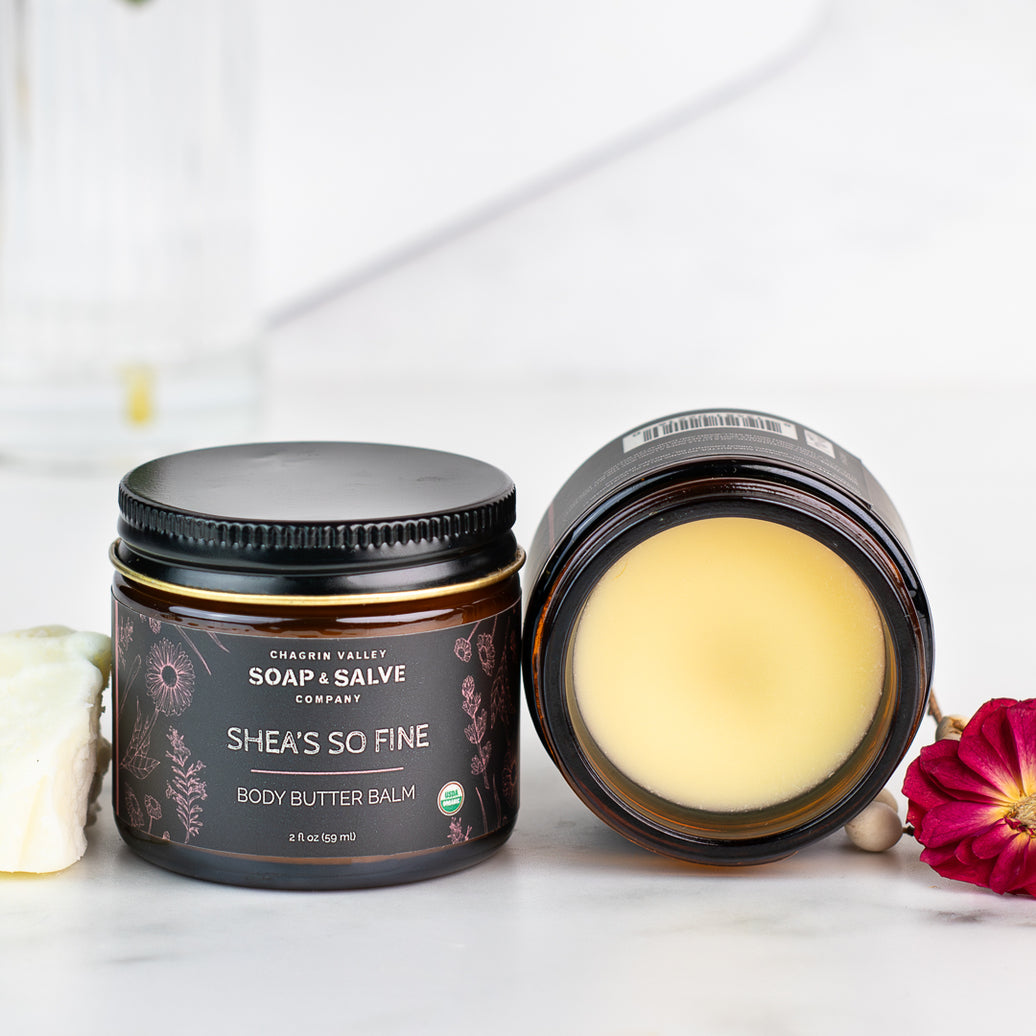
Body Balm: Shea's So Fine
- Out Of Stock
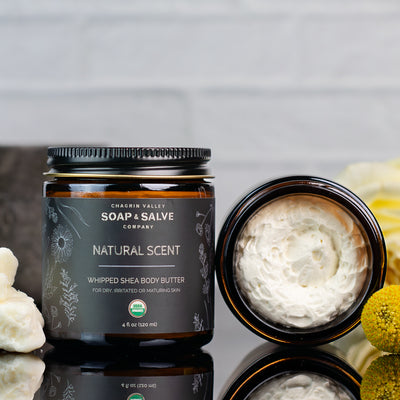
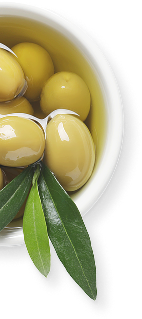
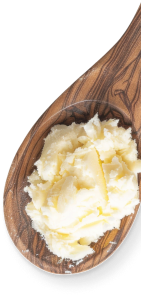
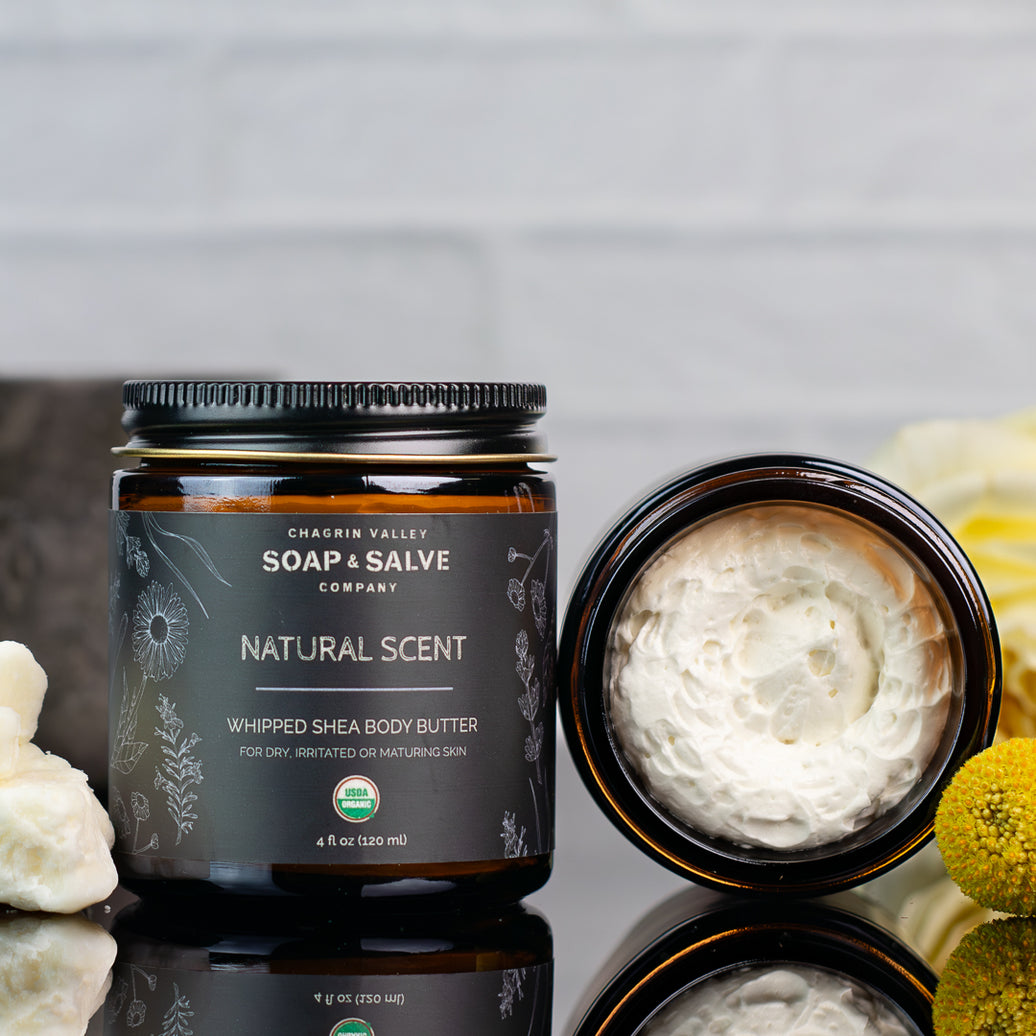
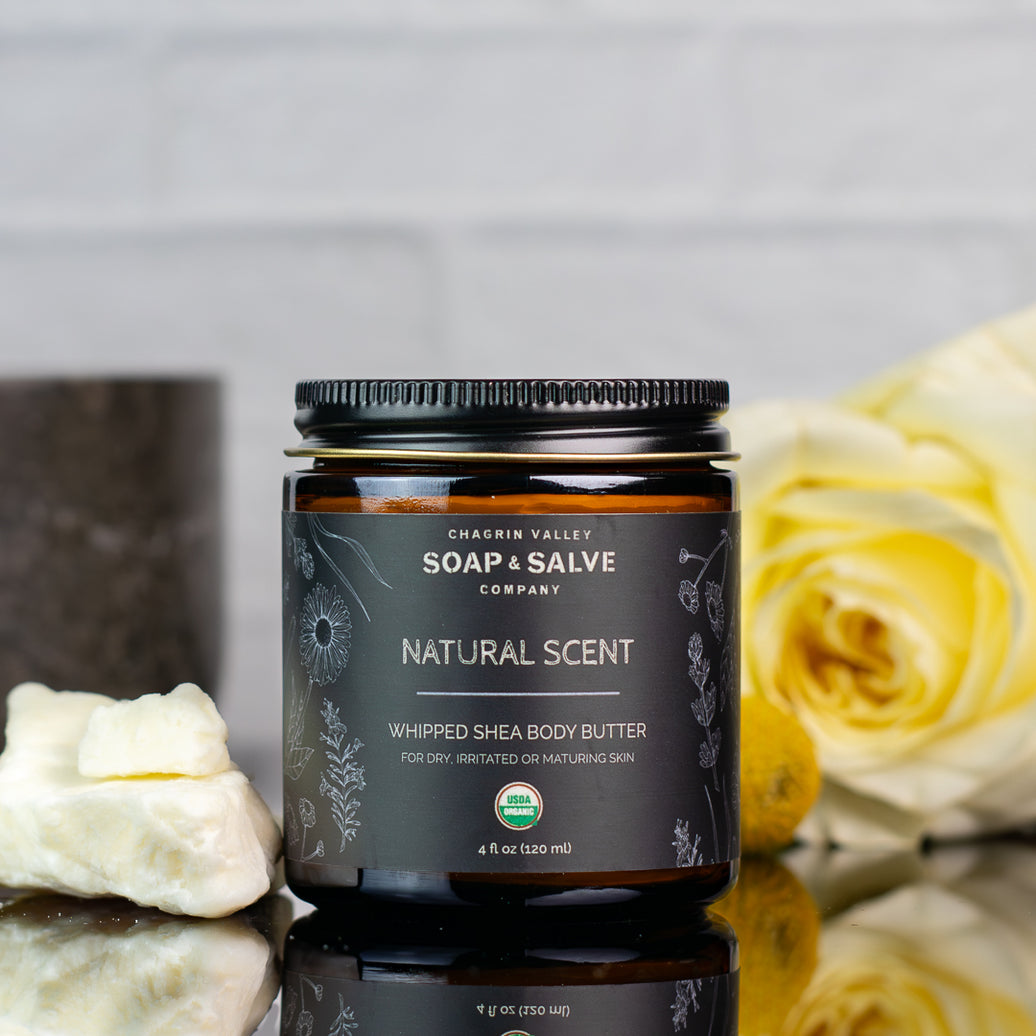
A blend of organic virgin shea butter and skin-nourishing oils whipped into a luscious cream that penetrates deeply to soothe, heal, and pamper your skin with no added scent.






Smooth, soothe, nourish and protect daily with our whipped shea butter, a silky head to toe body cream with a lightweight, velvety texture that instantly melts on contact with warm skin to help to help seal in moisture. Your skin will feel soft and hydrated. Dehydrated skin is lacking moisture and can become dry and itchy and dull looking. A little goes a long way.
We call it a body butter, but it is also a great product for a dry, parched, or ashen facial skin.
This emollient cream is a blend of organic virgin shea butter, skin-nourishing plant oils, and a touch of silky tapioca flour whipped into a luscious moisturizer to help pamper dry, rough, flakey skin.
Unrefined Shea Butter, a great emollient, is perfect for challenging skin issues. It soothes, moisturizes, and softens dry patches and helps ease irritated or inflamed skin conditions. Rich in fatty acids that nourish the skin, it is an excellent butter for keeping skin soft, supple, and even-toned. Our shea butter is Fair Trade and produced by a woman-owned company in Ghana
The chemical make-up of highly emollient golden Jojoba Oil resembles that of our own skin sebum (oil). It is considered nature's most effective natural moisturizer and a good option for easing skin conditions such as eczema and psoriasis. Jojoba is a good choice for all skin types.
Sunflower Seed Oil, known to be one of the most moisturizing vegetable oils, is a great oil for all skin types. It has emollient properties that not only help hydrate skin but also help the skin retain moisture which is great for delicate, dry, or mature skin.
Babassu oil, rich in fatty acids, is great for all skin types, but especially for chapped, cracked, and dry skin.
Tapioca Flour has a very fine, velvety soft texture, that imparts a silky texture to body creams. It also helps calm skin irritations and is good for all skin types and is particularly gentle on sensitive skin.
No added scent. Just the naturally nutty, smokey aroma of organic virgin shea butter!
When the epidermis (top layer of your skin) does not have enough moisture, it dries out leading to rough, flaky, or even cracked skin. An rich emollient cream can seal in needed moisture which leads smoother, softer skin.
Directions
Notes
Special Tip: If you enjoy the application "feeling" of a lotion better than a cream, try massaging our rich Whipped Butters into warm, wet skin after a bath or shower. Wait a few moments and gently pat dry. (Do not rub the skin dry!)
Since a lotion is just a lot of water mixed with oils, a rich and creamy natural butter on warm wet skin will have a similar feel.
If you have very sensitive skin or are simply trying a new product for the first time, we always recommend doing a patch test.
For external use only. Discontinue use if irritation occurs. Best if used within 6 months of opening.
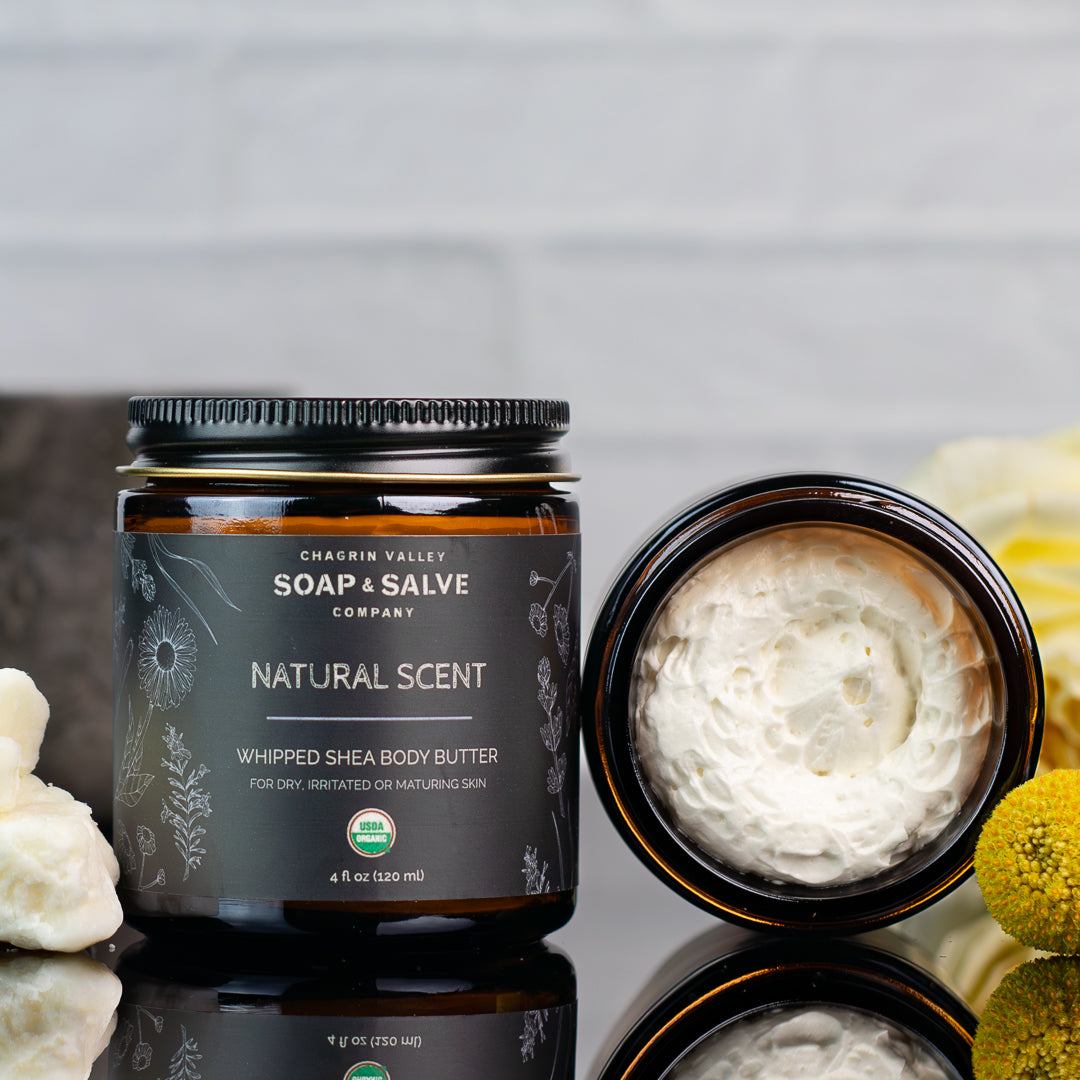
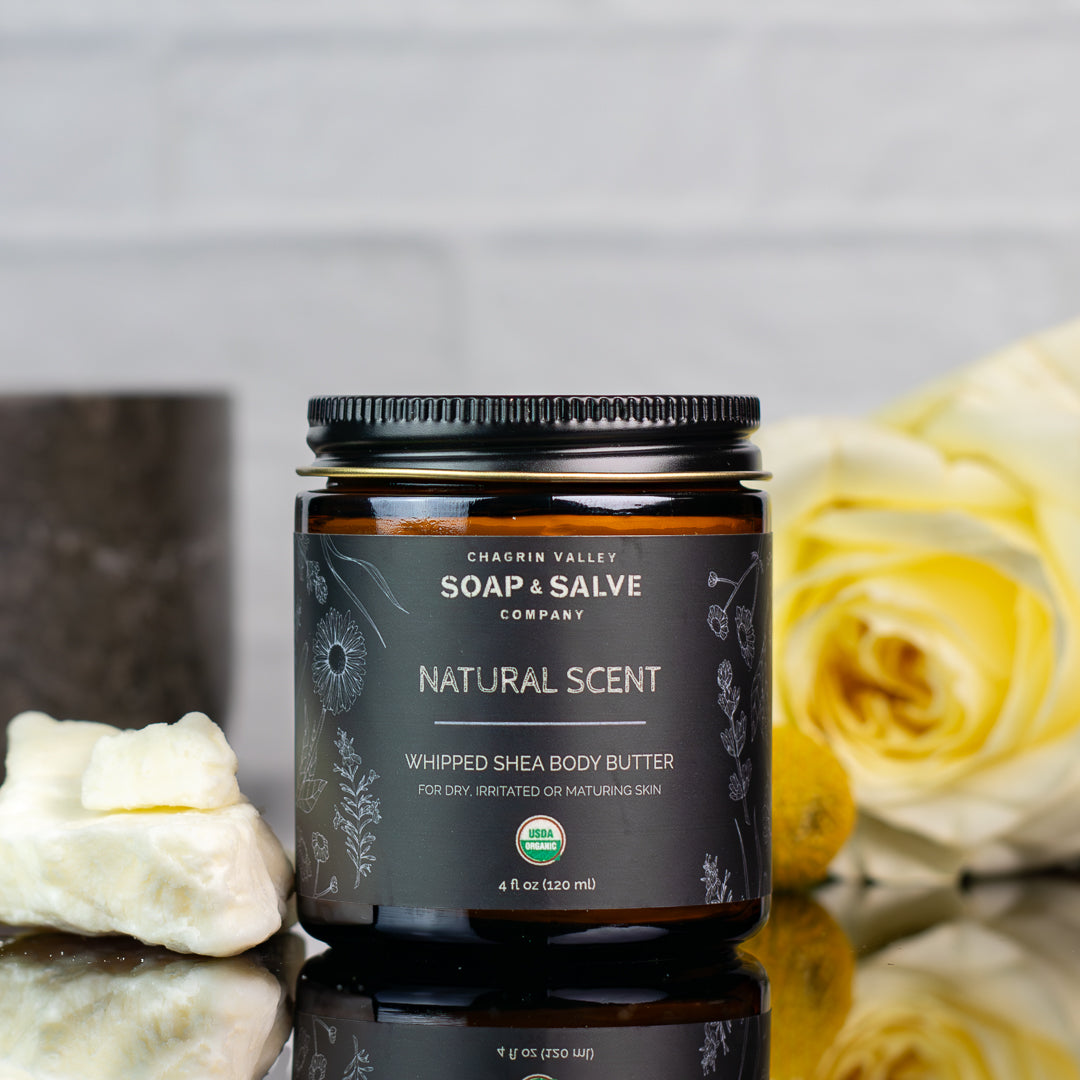
The goal is simple: to Harness the Power & Simplicity of Nature® to cleanse, soothe, heal, and protect your skin and hair!
Our unique formulas rely on moisturizing oils and butters, healing botanicals, and pure essential oils. We choose every ingredient with one end-result in mind….the BEST possible natural skin care for YOU!
 Organic Virgin Shea Butter*
Organic Virgin Shea Butter*
 Organic Jojoba Oil
Organic Jojoba Oil
 Organic Sunflower Oil
Organic Sunflower Oil
Please Note: Although ingredients on the packaging say "arrowroot powder", we are using Tapioca Flour.
*Ingredient is Fair Trade Certified
Our Shea Butter is unrefined and has not been bleached or deodorized.
Pure unrefined shea butter has an earthy, nutty, smokey scent that ranges from mild to strong and can be quite pungent. Since our shea butter is a natural, unrefined product it retains its natural scent, color, and nutritional benefits. The scent and color of unrefined shea often vary from batch to batch.
Read our Shea Butter Tutorial which explains the various types of shea butter as well as why we believe that the benefits of unrefined shea butter far outweigh the cons of its smokey, pungent scent.
 Well, first of all, it's an all-natural product. Commercial lotions are NOT. Our Body Balms and Whipped Shea Butters only contain the ingredients that they need to moisturize your skin.
Well, first of all, it's an all-natural product. Commercial lotions are NOT. Our Body Balms and Whipped Shea Butters only contain the ingredients that they need to moisturize your skin.
Creams and lotions formulated with synthetic ingredients often aggravate sensitive skin, exacerbate irritated skin conditions, and trigger allergic dermatitis.
The organic oils and butters we use do NOT contain petroleum based chemicals (Mineral Oil, Petrolatum, Paraffin), chemical emulsifiers (DEA, MEA, TEA), chemical preservatives (Parabens, Urea), Propylene Glycol, artificial colors, or synthetic fragrances.
Have you ever noticed that when you use your body lotion your skin never stays moist and you find yourself going back to the lotion bottle over and over?
Look at the ingredients. The main ingredient in lotion is water! Once water is added to make a lotion, preservatives are needed to prevent mold and bacteria growth.
Commercial lotions often contain isopropyl alcohol and/or mineral oil. Both of these actually are very drying to your skin. The alcohol gives a temporary sense of coolness due to evaporation.
Mineral oil is a clear, liquid oil with no scent and will not spoil. It is very inexpensive because it is the liquid by-product of the distillation of petroleum to produce gasoline and other petroleum-based products from crude oil. It is found in lotions, soaps, baby oil, cosmetics, and motor oil. Mineral oil
It is great for oiling your wooden cutting boards--but not your skin. Mineral oil does not penetrate to soften. It is difficult to absorb, coats your skin and clogs the pores. If you would like to have healthy skin, stay away from mineral oils, animal fat, petroleum, and synthetic oil based skincare.
We know that natural body butters make great moisturizing body creams. But here are some other ways we have used these balms and butters:
HINT: If you enjoy the application "feeling" of a lotion better than a cream, try massaging our rich Whipped Butters into warm, wet skin after a bath or shower. Wait a few moments and gently pat dry. (Do not rub the skin dry!)
Since a lotion is just a lot of water mixed with oils, a rich natural butter on warm wet skin will have a similar feel.
If you think about it, your skin type is not even the same for all of the areas of your body.
The skin on your face is different from the skin on your hands, which is different from the skin on your back which is different from the skin on your feet ...etc.
Although your skin type is determined by genetics, it will also be affected by other factors and can change with time.
Understanding your skin type is a good starting point before trying or switching to natural products.
There are typically five types of healthy skin: normal, dry, oily, combination, and sensitive.
NORMAL SKIN
This skin is balanced, neither too dry nor too oily. It has regular texture, no imperfections and a clean, soft appearance, and does not need special care.
OILY SKIN
Oily skin is the result of excessive secretions of sebum, an oily secretion of the sebaceous glands. Oily skin tends to attract more dirt and dust than dry skin and may be prone to blackheads, acne, and excessive shine. It is frequent in adolescents and often seen with acne or blemish-prone skin.
DRY SKIN
For some people dry skin is caused by external factors such as the weather, low air humidity, sun, or hot showers, and it is often temporary.
However, for others it may be a lifelong condition. Dry skin is a result of a decrease in natural oil production which often results in skin that is flaky and has a rough appearance. Dry, cracked skin is often prone to skin disorders, such as eczema.
 SENSITIVE SKIN
SENSITIVE SKIN
Truly sensitive skin easily reacts to external stimuli. The skin is often fragile, thin or fine-textured, dry, and prone to allergic reactions.
Sensitive skin often feels uncomfortable, tight, red or itchy. It is a delicate skin that needs a lot of TLC.
COMBINATION SKIN
Combination skin is just what is sounds like, it has characteristics of both dry and oily skin. The area with more oil is usually the T- zone (forehead, nose, and chin), while the skin on the cheeks is normal or dry.
For more information on skin type and help with product recommendations for your individual needs, please read our blog, What's Your Skin Type?
We do not use synthetic stabilizers or waxes, so our delicate natural products packaged in glass jars and metal tins are sensitive to temperature changes.
While shipping during warm weather seasons presents a real challenge to our natural skin care company, we accept the challenge in order to maintain our standard of natural and nourishing skin care. We hope you agree.
During warm weather, products may soften or even melt as they sit in warm mail trucks, mailboxes, or on front porches.
The quality and healing properties of our products are not affected by melting.
On very sunny or warm days, BEFORE opening the jars or tins, place the items in your refrigerator for a few hours to allow them to harden, just in case they have melted in transit. If you open items, especially those in tins, to check if melting has occurred, they may spill and make a mess!
If you think that your balm-like deodorant is melted or runny, BEFORE opening the jar, pop it in the freezer for 10 - 15 minutes. As it begins to harden give it a stir (so that the solids do not sink to the bottom) and place it back in the freezer until firm!
Sometimes a cream deodorant can melt during warm transit and then slowly re-solidify before you receive it. This melting and slow cooling can result in a grainy feeling. If your deodorant feels grainy, simply melt it, mix thoroughly, and place it in the refrigerator until solid.
Since the stick deodorant are made with more beeswax, they are less sensitive to an increase in outside temperature.
Place a melted body butter in the refrigerator until firm.
Our hand-whipped process adds tiny air bubbles that increase the volume, just like whipping cream. If a whipped product melts, the air bubbles collapse and the volume is decreased.
So, although the jar was filled to the top initially, there will be less volume in the container (since it has deflated) and the container may actually look half full.
After cooling a melted Whipped Butter will be the consistency of our body balm and is still a great moisturizer.
If a Sugar Scrub melts, the oil may separate out a bit. Give it a good mix and place it in the refrigerator for about 10 to 15 minutes. As it begins to harden up give it another stir to disperse the sugars and place it back in the refrigerator. Once it's solidified and mixed it will be great to use! Again because it is a whipped product, the container may have less volume when the whipped butters melt.
Read more about melting products and what to do in our blog "Natural Skin Care Products Melt In Hot Weather."

The most important consideration in any business is its customers. Today's world of misleading claims, false advertising, and simple deception, often leaves consumers trying to discover the truth about personal products and their ingredients.
Some of my favorite products are made with ingredients that just do not exist as certified organic. Why? At this time there are no standards created for ingredients specifically used in the personal care product industry. Organic certification of personal care products is based on the organic food standards set by the National Organic Program of the USDA.
But since we are a certified organic company, we are required to submit documentation that even our "non-organic ingredients" were produced without the use of toxic pesticides, genetically modified organisms (GMOs), sewage sludge, or irradiation.

Why Did We Become a Certified Organic Company?
What Do All of the Organic Labels Mean?
 We hand make all of our own products in small batches to ensure freshness, consistency, and perfection.
We hand make all of our own products in small batches to ensure freshness, consistency, and perfection.
Our products are not made to sit on store shelves for years and years.
Although there are natural preservatives within the chemical structure of many natural ingredients, they not as potent as the synthetic preservatives used in commercial products to prolong shelf-life.
Other than soap, our products are remade every few weeks and none are very old when they are sold. Our non-soap products should be opened within 6 months of purchase.
Since we use no preservatives or chemical stabilizers, the more important question is, "how long will the product last once it has been opened?
Once opened, skin care products become exposed to dirt and microorganisms (bacteria, yeasts, and molds) that are found in the air and on the skin.
As soon as you open and begin to use any product, simply the way in which you use it will affect its lifespan.
So, we use the PAO (period-after-opening) symbol. These symbols are already available on the product pages of our website and we are in the process of adding them to all of our labels.
The POA symbol is a standard symbol that identifies the useful lifetime of a skin care product after it has been opened for the first time.
 As you can see from the picture, the symbol is an open jar with a written number and the letter "M" for the word "months."
As you can see from the picture, the symbol is an open jar with a written number and the letter "M" for the word "months."
A product with a "9M" would mean that it is good for 9 months after opening.
Tip: write the date you open a product for the first time on its label so you can keep track of the period after opening.
Our POA number represents our best suggestion. There are many factors that can affect the lifespan of a product. If a product is discolored, has an unpleasant smell or looks odd, the product should not be used and should be discarded.
If you’re like me, and you find an old dusty product hiding in a drawer, makeup bag, or even a suitcase from your last trip, you can call us with the lot number and we can verify its age. Obviously, if it seems off in any way, toss it!
Please note: This PAO symbol is widely used in Europe to recommend the length of time a product remains usable after opening, for products that have a shelf-life of at least 30 months. Our products do NOT have a shelf-life of 30 months before opening.

We often receive questions as to whether our soaps, shampoos, and other items are safe to use on young children.
A baby’s skin, so thin and delicate, is no place for harmful synthetic chemicals.
Sadly, even some of the most trusted baby brands add nasty chemicals to their products.
Read the label on a bar of commercial baby soap or shampoo. Read the label on a bottle of commercial baby oil. Now read the ingredients in Chagrin Valley products.
We recommend starting with our Milk & Honey Baby Soap. We also recommend our two Castile soaps and Carrot & Honey Soap. They are unscented and, as with all of our products, contain no artificial ingredients!
My grandkids use our Milk & Honey bar as a baby shampoo--just keep the soap away from their eyes.
When you think your child is ready, try some new soaps.
As with all new products, it is best to do a skin patch test prior to full usage to test for any skin allergies or sensitivities. If you have any questions or concerns always check with your doctor or health care professional.
It is best to add only one new soap or product at a time and use it for a while before switching to a new soap.
Essential Oils & Children: We do not provide information on the safety of essential oils for use in Children because the available information is very ambiguous and often contradictory. If you are interested in using essential oils with young children please consult your health care professional before use.
Please do not ask us to diagnose your child's skin problems, we are not health care professionals. Our recommendations are based on what our customers have shared.
Click Here to visit our page of Organic Baby products!
 We often receive questions as to whether our soaps, shampoos, and other natural products are safe to use during pregnancy.
We often receive questions as to whether our soaps, shampoos, and other natural products are safe to use during pregnancy.
We recommend that expectant and nursing mothers check with their midwife or physician before changing a skincare routine with our organic products, or any other line of products.
Read the label on a bar of commercial soap. Read the label on your jar of moisturizer.
Now read the ingredients in a Chagrin Valley product.
We use quality natural and USDA Certified Organic ingredients. No synthetic additives, colorants, fragrances, preservatives, or chemical derivatives are used.
There is nothing in our all-natural basic soap or other products that could cause a problem in pregnancy.
Topically applying the herbs present in many of our soaps is also not a problem. Your skin will absorb much less herb from the soap than if you would sprinkle them on your food.
The issue that seems to be of most concern is the use of essential oils during pregnancy.
There is a lot of confusing, ambiguous, and inaccurate information concerning the use of essential oils in pregnancy.
The question of safety and safety testing has a lot to do with several factors.
But also, aromatherapy and massage therapy use much higher concentrations of essential oils than you find in soap or even in eating the herb. With aromatherapy, you are inhaling the high concentrations which get absorbed via the lungs and in massage therapy, the essential oils remain on your skin and are absorbed.
Our scented soaps are gently scented with essential oils, but the choice is between you and your health care professional. The most critical time is the first trimester.
Just about every one of our products, like lip balms, whipped butters, soaps, shampoos, and deodorants has a "no added scent" version.
When there is a growing baby to consider, if you are at all uncertain as to the safety of an essential-oil containing product, or any ingredient, please consult your doctor, midwife, or health care professional!
When it comes to safety during pregnancy it is understandable that many massage therapists and aromatherapists decide to err on the side of caution in recommending the avoidance of certain essential oils.
Some Herbalists and Aromatherapist believe that essential oils that are normally safe to use, are safe during pregnancy, while others will recommend avoiding all essential oils during pregnancy.
Some essential oils that are normally quite safe have hormone-like effects and some even stimulate uterine muscles, both of which would be contraindicated during pregnancy.
Please do not ask us if one of our products is safe to use during pregnancy--we will simply refer you to this page.
We do not provide a list of essential oils considered safe during pregnancy because the information available is very contradictory. One aromatherapy source will list an essential oil as problematic while another one states it is fine.
The information is also changing constantly. Please do your own research and consult your doctor, midwife, or health care professional for the most up-to-date information.
Even if you have never had sensitive skin in the past, you may notice that a product you have been using for several years now irritates your skin.
The stretching belly is often the most sensitive spot. Other potential problem areas include the hips, thighs, and bottom where the skin may become dry and flaky.
Although the exact cause is not known, raging hormones do make you more sensitive to a wide range of things, and also your skin is thinning and stretching as you, and your baby, grow.
These changes can behave in unpredictable ways. For example, if you have eczema you may suffer from major flare-ups or complete remission during pregnancy.
Keep your body well moisturized and avoid products that contain synthetic additives, colorants, fragrances, or preservatives. Any of these can exacerbate sensitive skin problems.
Before trying a new product, you can always do a patch test to test for sensitivity.
And again, we recommend that expectant and nursing mothers check with their midwife or physician before changing a skincare routine with our products, or any other line of products.
Pregnancy & Children: We do not provide information on the safety of essential oils during Pregnancy or for use in Children because the available information is very ambiguous and often contradictory. If you’re interested in using essential oils during pregnancy or with young children please do your own research and consult your doctor, midwife, or health care professional before use.
We are required to submit documentation that ALL of our ingredients, even our "non-organic ingredients," were produced without the use GMOs.
Since the U.S. National Organics Program forbids the use of genetic modification in products to be certified as organic, purchasing organic is a great way to lower your exposure to GMO’s.
Genetically Modified Organisms refers to any animal, plant or microorganism that has been changed in a lab at the gene level. It is also known as “genetic engineering."
Read more about "Non-GMO Skin Care Ingredients"

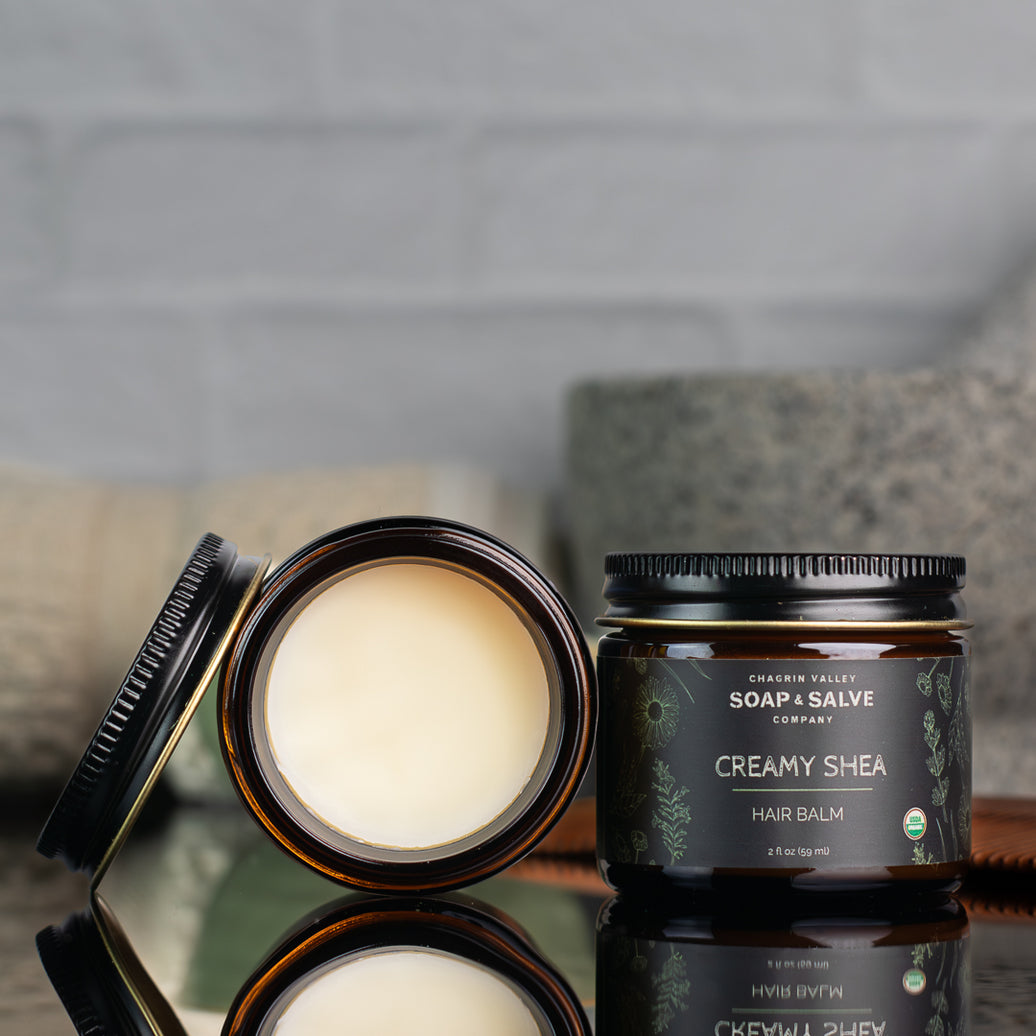
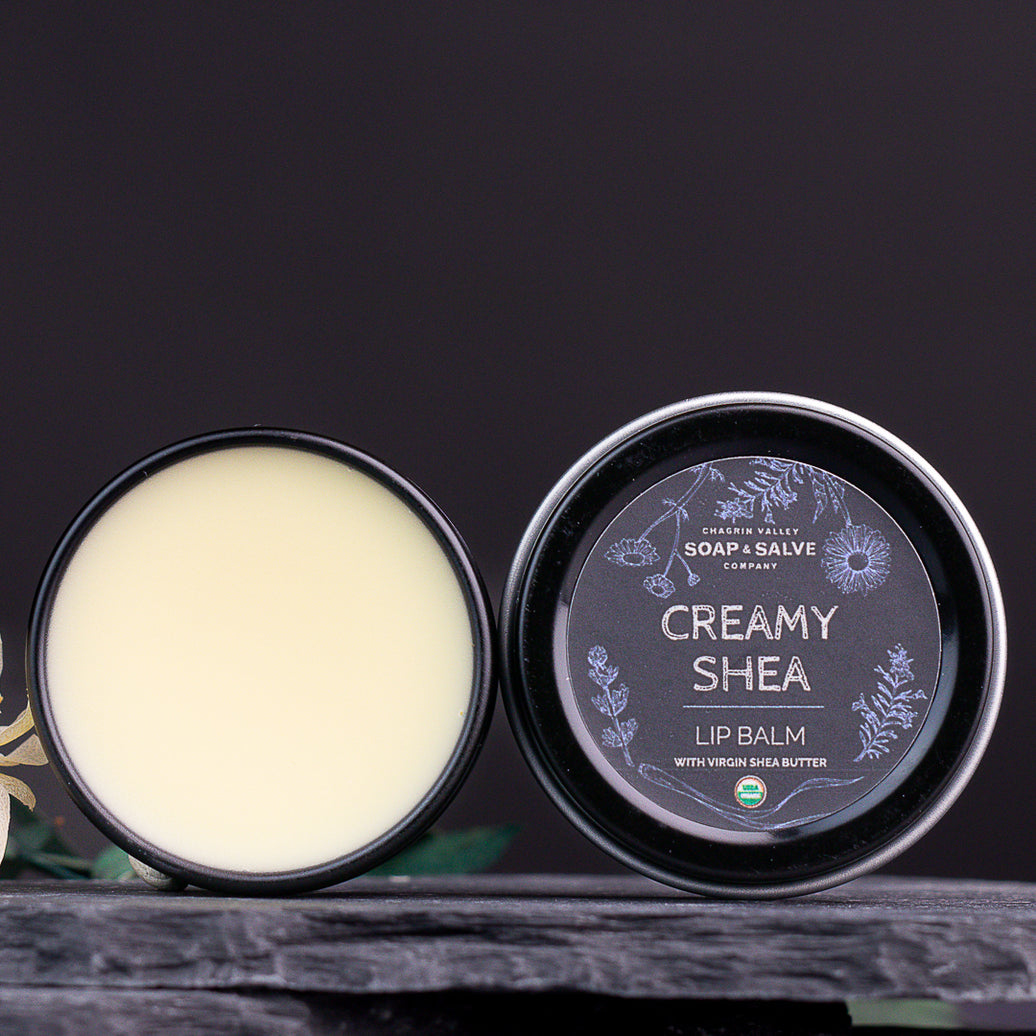
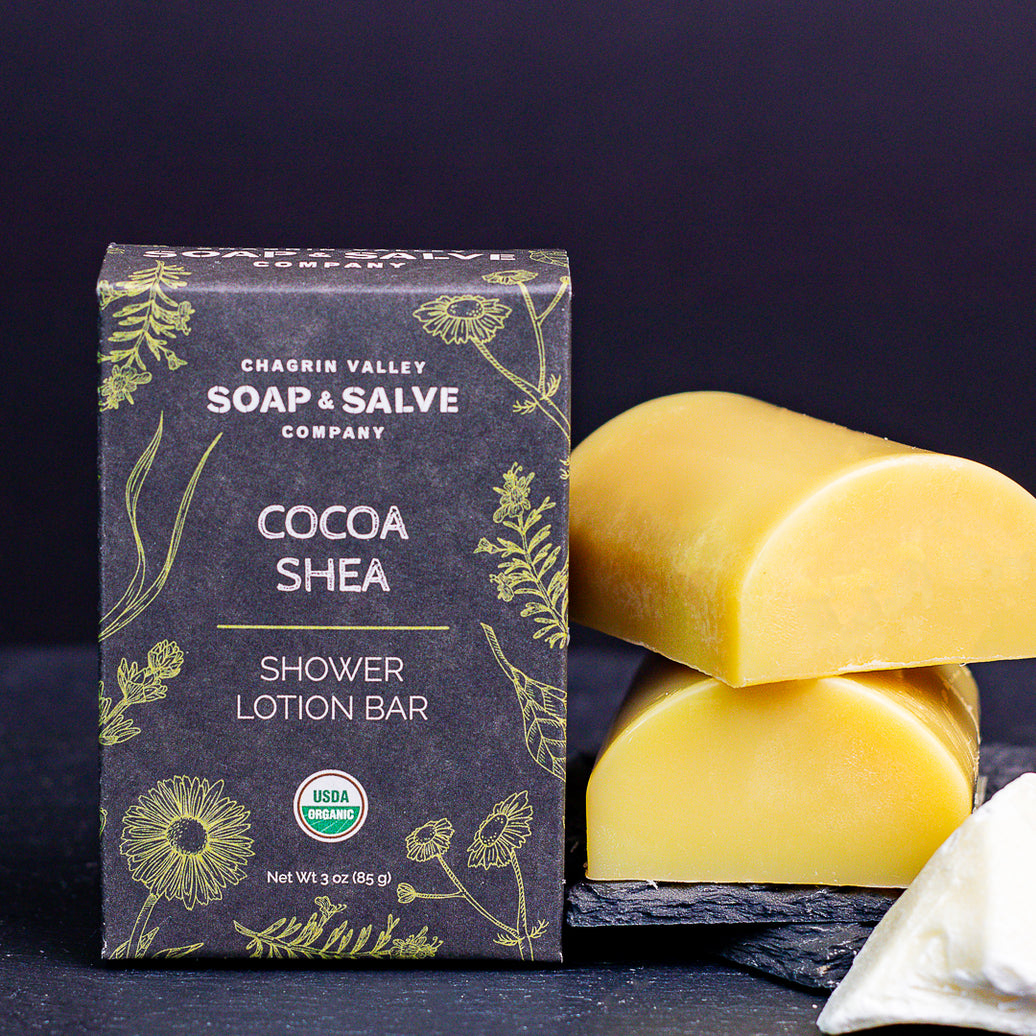

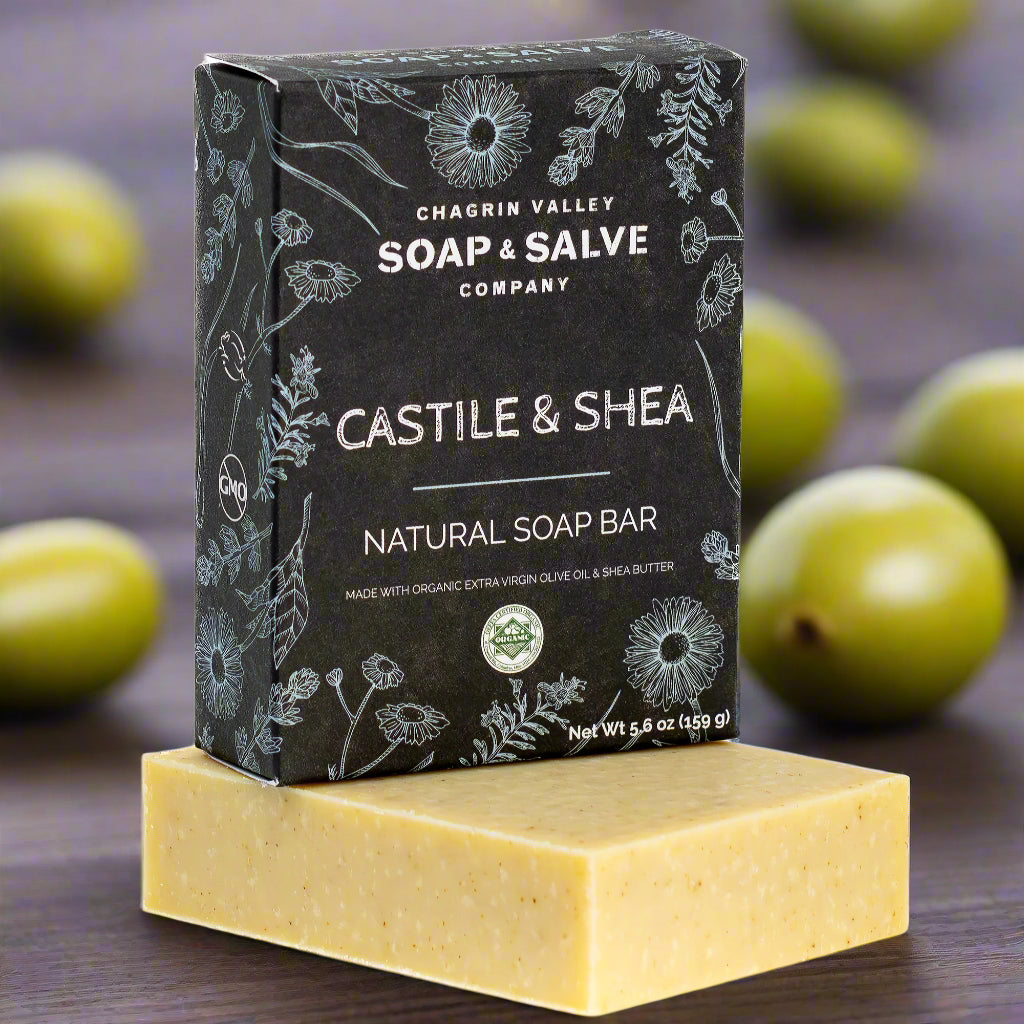
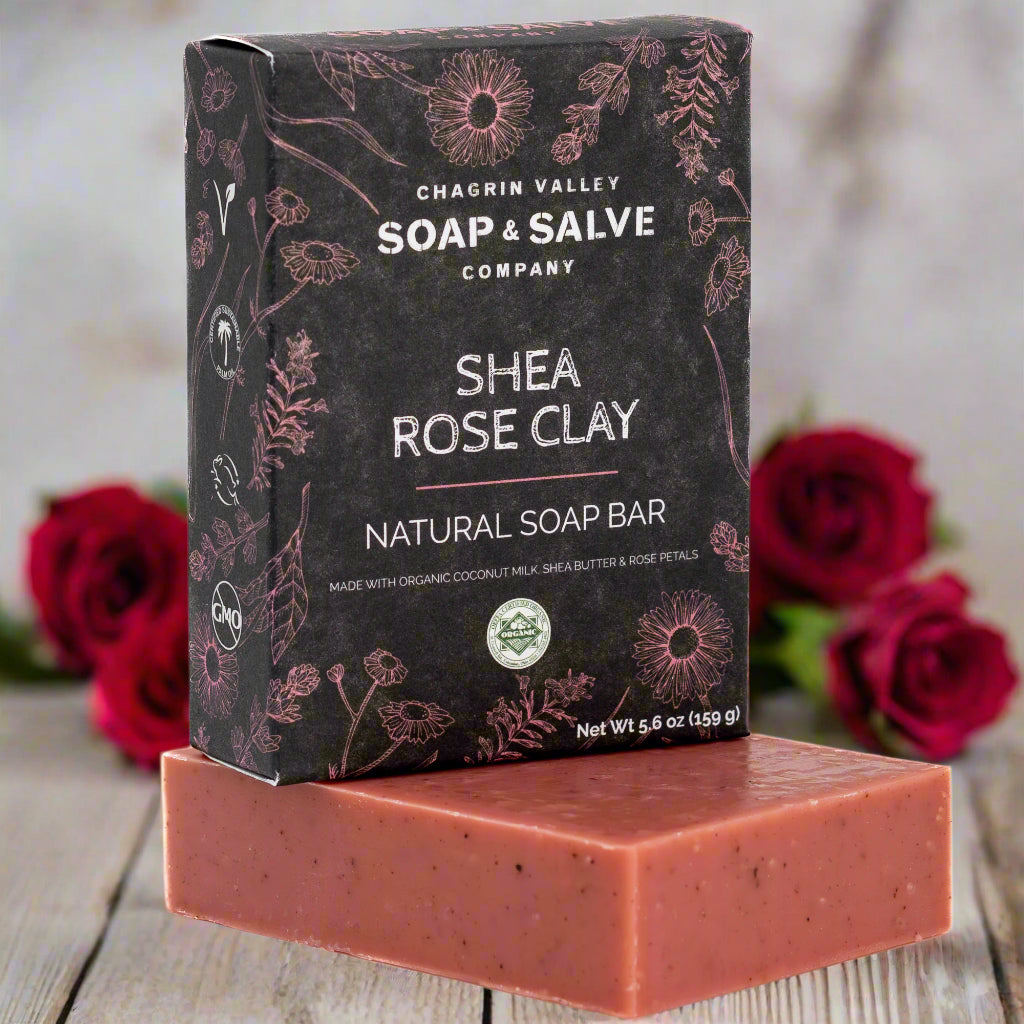
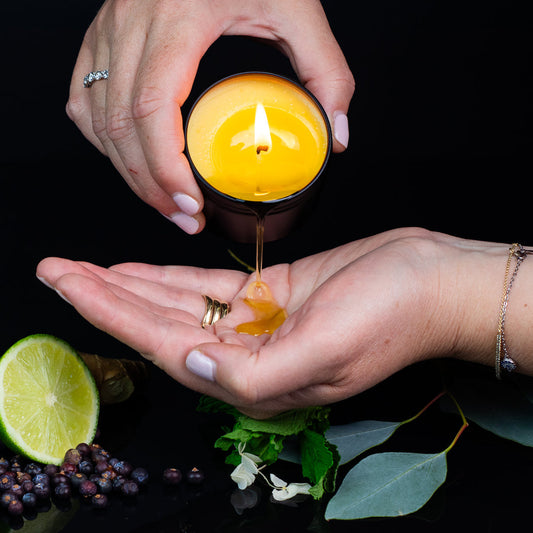
Help Me Choose a Natural Moisturizer: The path to beautiful skin the path to beautiful skin begins with natural cleansing and moisturizing. Moisturizers help keep skin hydrated and supple. We hope the information below will help you choose the best moisturizer for your skin type.
Read Post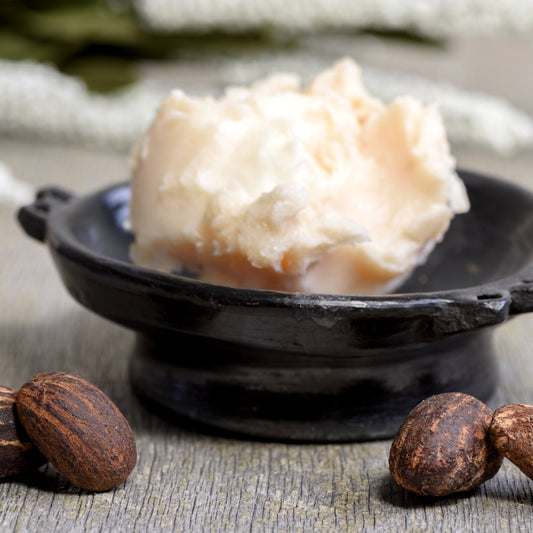
Shea Butter has been used across the African continent for centuries. But, all Shea Butter is not created equal! Let's Find Out Why.
Read Post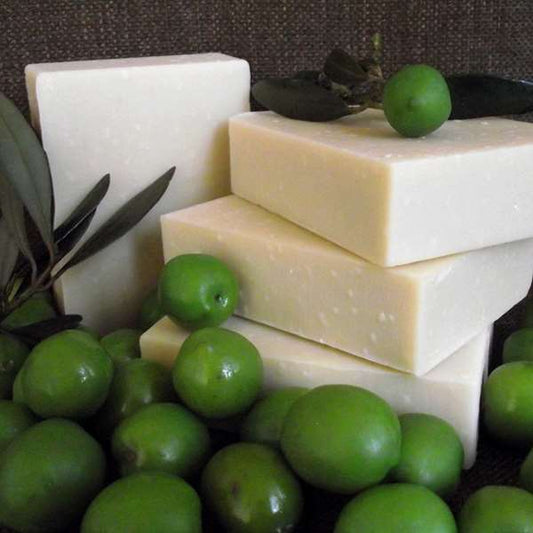
Help Me Choose a Natural Product to Help Ease Sensitive Skin: For many skin irritation can be traced back to skincare and result in skin that feels dry or itchy. The products recommended may help prevent or ease symptoms associated with sensitive skin.
Read Post